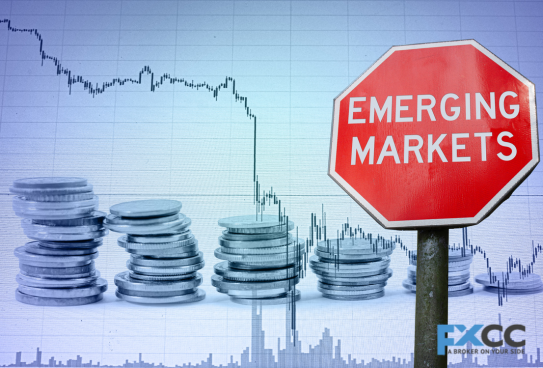Emerging markets, once considered peripheral to the global financial landscape, are now at the forefront of a new economic paradigm. As these nations rapidly develop and modernize, they are reshaping the way we think about finance, investment, and global interconnectedness.
Key Drivers of Emerging Market Growth
Several factors are driving the ascent of emerging markets:
- Economic Expansion: Many emerging economies are experiencing robust economic growth, fueled by increased industrialization, urbanization, and rising consumer spending. This growth creates a fertile ground for financial innovation and investment opportunities.
- Demographic Dividends: Many emerging markets have a young and growing population, which can provide a significant demographic advantage. A burgeoning workforce, enhanced productivity, and amplified economic growth potential are anticipated outcomes of this demographic trend.
- Technological Advancements: Emerging markets are rapidly adopting new technologies, including mobile payments, e-commerce, and fintech solutions. This technological leapfrog can enhance financial inclusion and efficiency.
- Policy Reforms: Many emerging governments are implementing economic and financial reforms to attract foreign investment, improve governance, and create a more conducive business environment.

Emerging Markets as Investment Destinations
The growth potential of emerging markets has made them increasingly attractive to global investors. Here are some key reasons why:
- Higher Returns: Historically, emerging markets have often offered higher returns on investment compared to developed economies. This is due to their faster economic growth and potential for capital appreciation.
- Diversification Benefits: Investing in emerging markets can help diversify an investment portfolio, reducing overall risk. The performance of emerging markets is often less correlated with developed markets, providing a hedge against potential downturns.
- Growth Opportunities: Emerging markets offer numerous opportunities for investors to participate in the growth of dynamic industries, such as technology, infrastructure, and consumer goods.
Challenges and Opportunities
While the future of emerging markets looks promising, they also face significant challenges:
- Volatility: Emerging markets can be more volatile than developed markets due to factors such as political instability, economic fluctuations, and currency fluctuations.
- Governance and Corruption: Weak governance and corruption can hinder economic development and deter foreign investment.
- Infrastructure Deficiencies: Inadequate infrastructure, such as transportation and energy, can constrain economic growth and limit investment opportunities.
Despite these challenges, emerging markets present numerous opportunities for investors and businesses. By carefully assessing risks and rewards, and by working with experienced partners, it is possible to capitalize on the growth potential of these dynamic economies.
Conclusion
Emerging markets, once considered peripheral to the global financial landscape, are now at the forefront of a new economic paradigm. Their rapid development, driven by economic expansion, demographic dividends, technological advancements, and policy reforms, has made them attractive investment destinations. While challenges such as volatility, governance, and infrastructure deficiencies persist, the long-term prospects for emerging markets remain promising. By carefully assessing risks and rewards, and by working with experienced partners, investors and businesses can capitalize on the growth potential of these dynamic economies.

FAQs
- What are the key emerging markets to watch? Among the leading emerging economies are China, India, Brazil, Russia, South Africa, Mexico, Indonesia, and Turkey.
- What are the risks associated with investing in emerging markets? The risks include political instability, economic fluctuations, currency volatility, and governance challenges.
- How can investors mitigate the risks of investing in emerging markets? Investors can mitigate risks by diversifying their portfolios, conducting thorough research, and working with experienced investment professionals.
- What are the long-term prospects for emerging markets? The long-term prospects for emerging markets are generally positive, driven by their economic growth potential, demographic advantages, and technological advancements.
As the global economy continues to evolve, emerging markets will play an increasingly central role. By understanding the opportunities and challenges presented by these dynamic economies, investors and businesses can position themselves for long-term success.


